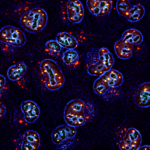Link to Pubmed [PMID] – 19208682
Genome Res. 2009 Mar;19(3):438-51
The natural history of cancers associated with virus exposure is intriguing, since only a minority of human tissues infected with these viruses inevitably progress to cancer. However, the molecular reasons why the infection is controlled or instead progresses to subsequent stages of tumorigenesis are largely unknown. In this article, we provide the first complete DNA methylomes of double-stranded DNA viruses associated with human cancer that might provide important clues to help us understand the described process. Using bisulfite genomic sequencing of multiple clones, we have obtained the DNA methylation status of every CpG dinucleotide in the genome of the Human Papilloma Viruses 16 and 18 and Human Hepatitis B Virus, and in all the transcription start sites of the Epstein-Barr Virus. These viruses are associated with infectious diseases (such as hepatitis B and infectious mononucleosis) and the development of human tumors (cervical, hepatic, and nasopharyngeal cancers, and lymphoma), and are responsible for 1 million deaths worldwide every year. The DNA methylomes presented provide evidence of the dynamic nature of the epigenome in contrast to the genome. We observed that the DNA methylome of these viruses evolves from an unmethylated to a highly methylated genome in association with the progression of the disease, from asymptomatic healthy carriers, through chronically infected tissues and pre-malignant lesions, to the full-blown invasive tumor. The observed DNA methylation changes have a major functional impact on the biological behavior of the viruses.

